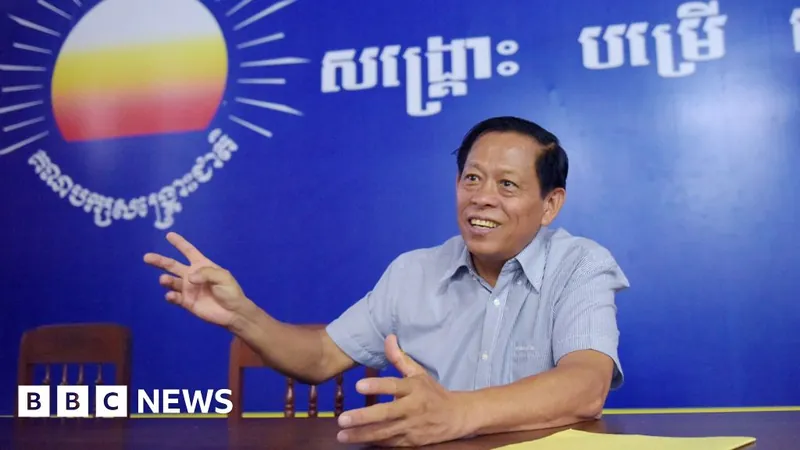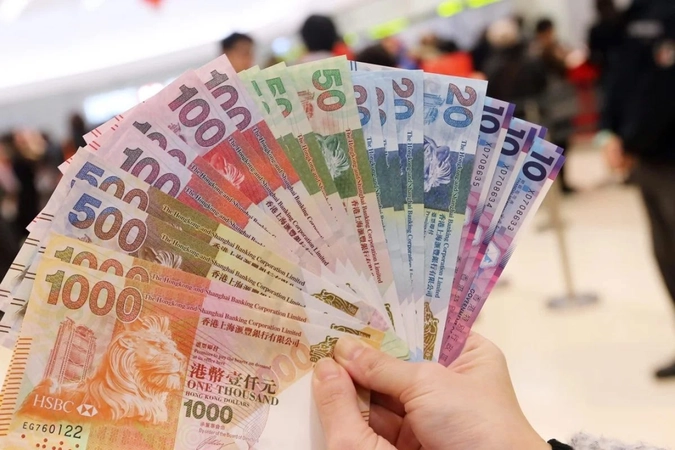
Shock and Suspicion: The Assassination of Cambodian Politician Lim Kimya in Bangkok
2025-01-09
Author: Ting
A Shocking Assassination
A shocking assassination took place in Bangkok, casting a dark shadow over Southeast Asian politics. Lim Kimya, a 73-year-old former Cambodian opposition politician, became the target of a cold-blooded murder that raises numerous questions and concerns about regional security.
The Incident Unfolds
The incident unfolded dramatically near a renowned temple in the historic heart of Bangkok. Security footage captures the moment an unidentified man parks his motorbike, removes his helmet to expose his face, and calmly walks across the street. Moments later, gunshots ring out, and Lim Kimya collapses to the pavement, hit by two bullets in the chest. He had just arrived in Thailand from Cambodia alongside his wife when tragedy struck.
Aftermath and Reactions
Despite attempts by a police officer to administer first aid, Lim Kimya was pronounced dead at the scene. His daughter, Monovithya Kem, an outspoken critic of the Cambodian government, stated, "He was courageous, with an independent mind. No-one but the Cambodian state would have wanted to kill him."
Political Background
Lim Kimya was a prominent figure within the Cambodia National Rescue Party (CNRP), a political party that was banned in 2017 after coming close to defeating Prime Minister Hun Sen’s ruling party in 2013. Following this near-victory, the CNRP faced relentless persecution, with members harassed, jailed, or forced into exile. Lim, who held dual Cambodian and French citizenship, chose to remain in Cambodia even after the dissolution of his party.
A Rare but Disturbing Trend
Political assassinations are relatively rare in Cambodia, but high-profile murders have occurred, such as the killings of critic Kem Ley in 2016 and environmental activist Chut Wutty in 2012. However, the recent assassination of Lim Kimya has sparked renewed fears about the safety of dissidents in the region.
Identifying the Assassin
Thai police have quickly identified the supposed assassin as a former Thai navy officer turned motorbike taxi driver. While locating him may be straightforward, ensuring a thorough investigation into the murder presents a significant challenge. In recent years, numerous activists fleeing authoritarian regimes in neighboring countries have faced similar fates, with many either forcibly returned or disappearing without a trace.
Concerns Over Transnational Repression
Human rights organizations allege a dangerous tacit agreement among Cambodia, Vietnam, Laos, and Thailand, facilitating cross-border operations against dissidents. Last November, Thailand returned six Cambodian dissidents to their home country, where they were met with immediate imprisonment despite being recognized as refugees by the United Nations.
The Pattern of Uninvestigated Murders
The potential for further transnational repression persists, exemplified by past incidents involving Thai activists who have been abducted in Laos or those disappearing in Cambodia. The case of Lim Kimya could easily fade into obscurity, following the trend of uninvestigated political murders.
Human Rights Advocacy
Human rights advocates, like Phil Robertson from the Asia Human Rights and Labour Advocates, have condemned this pattern, highlighting the pressing need to confront and halt the increasing suppression of dissent in the region.
The Future of Cambodia's Leadership
Speculation regarding Hun Manet's leadership following his father's long tenure as prime minister sparked hopes for a more lenient regime; however, the ongoing persecution of opposition members indicates otherwise. Hun Sen’s influence continues to loom large, as he pushes for laws branding political dissenters as terrorists.
International Scrutiny on Thailand
As Thailand faces scrutiny for its role in this alarming incident, the international community watches closely. The nation, recently securing a seat on the UN Human Rights Council, is now pressured to demonstrate its commitment to justice by investigating the brazen assassination that unfolded on its streets.
Conclusion: A Wake-Up Call
In an era where the lines between politics and violence are dangerously blurred, the assassination of Lim Kimya may serve as a wake-up call, highlighting the urgent need for protections against transnational repression and fostering a safe space for political discourse in Southeast Asia.


 Brasil (PT)
Brasil (PT)
 Canada (EN)
Canada (EN)
 Chile (ES)
Chile (ES)
 Česko (CS)
Česko (CS)
 대한민국 (KO)
대한민국 (KO)
 España (ES)
España (ES)
 France (FR)
France (FR)
 Hong Kong (EN)
Hong Kong (EN)
 Italia (IT)
Italia (IT)
 日本 (JA)
日本 (JA)
 Magyarország (HU)
Magyarország (HU)
 Norge (NO)
Norge (NO)
 Polska (PL)
Polska (PL)
 Schweiz (DE)
Schweiz (DE)
 Singapore (EN)
Singapore (EN)
 Sverige (SV)
Sverige (SV)
 Suomi (FI)
Suomi (FI)
 Türkiye (TR)
Türkiye (TR)
 الإمارات العربية المتحدة (AR)
الإمارات العربية المتحدة (AR)